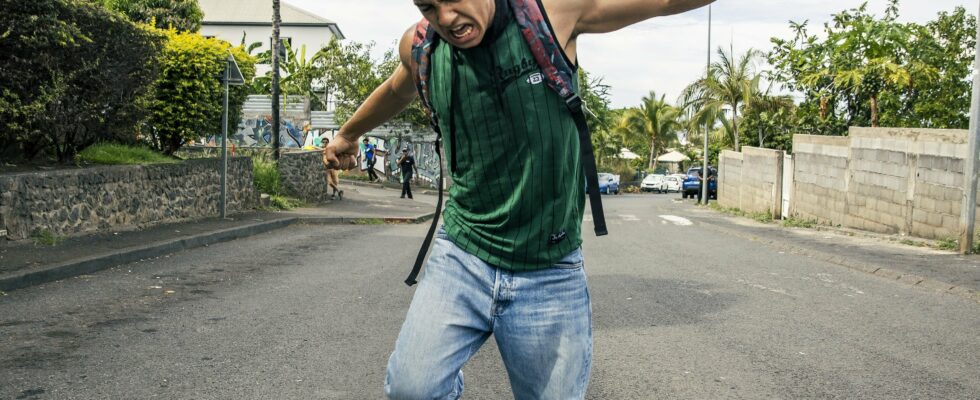Brat is a nice movie with bad guys inside. Different kinds of villains, starting with the mother. So bad that we don’t see it. We hear her yelling at her 15-year-old son Thomas (Maxime Calicharane) when she kicks him out of her house. We then see her arm (this is filmed from the upstairs landing), or her leg, just before she slams the door, treating her son as less than nothing. So, already, three minutes into the film, I start to cry. I don’t like it when parents kick their children out. But I love seeing it in the cinema. The denunciation of unworthy parents. It touches me. It reminds me of personal things. Cinema is an art of revenge, it is structural. It’s Alexandre Dumas (The Count of Monte Cristo) who invented, if not cinema, the screenplay. The Lumière brothers’ first (commercial) film is The sprinkler watereda story of double bottom revenge. It is also the first comedy film in history from which the Lumière brothers were able to charge admission.
The laughter, the fear, the indignation, the sorrow and even the happiness (when they finally meet again, kiss each other, will never stop loving each other until the last image of the film), everything is structured by the revenge as a promise of reparation through which the spectator manages to recognize his own desire for murder, satisfied at 12 euros per session. It’s so good that maniacs like me buy a subscription card.
Thomas takes refuge with his sister Audrey, 17 (Brillana Domitile Clain), who is not much better off than Thomas. Mother of an infant who doesn’t really have a father, she has no other solution than to accompany her brother to child welfare. They are received by a rather nice woman who calls the mother to try to sort things out. New barrage of insults. What are we going to do with you, she asks. And where is your father? I don’t know, replies Thomas. Audrey then feels obliged to admit that she knows where their father lives, she saw him again. And you didn’t tell me anything, Thomas protests. There too, my eyes sting.
Not vulgar in pathos
The rather nice lady manages to contact Christophe (Vincent Vermignon), the father of the two teenagers in distress. He remarried a woman who already had two children. Will he react like the mother? No. He lets himself be convinced to take in his two children, temporarily saved, and this is how his family grows. It should be noted that the film takes place on the island of Reunion, four times smaller than Corsica, a department which is not quite “France” nor quite anything else.
Thomas is a devil, a gallows game. What could save him is hip-hop. Of passpass in powermoveshe is selected for the final of the Battle of the year breakdancing. We cry once every quarter of an hour in this film. A real washout of the limbic system. But, how can I put it, it’s still a good film. Not vulgar in pathos. Probably because they all have talent.
Starting with the hero, Maxime Calicharane is serious, I don’t have the impression that he was dubbed for the most spectacular figures, he is the Bébel of hip-hop. Too bad he goes to Science Po. Or not. He probably made the film of his life and that’s fine. The others are all very good, and the dialogues in Creole (subtitled-translated into mainland French) do not hurt the ears. But I have a soft spot for Rudy, Audrey’s ex who disappeared when their child was born. He’s the only villain in the story, the only one whose face we see. He shows up at the end, I can’t tell you why. Nothing very original in the laziness of young Rudy, his lack of culture and finally his ordinary macho violence, nothing, but the genius of the person who interprets him: Malick Fruteau de Laclos.
